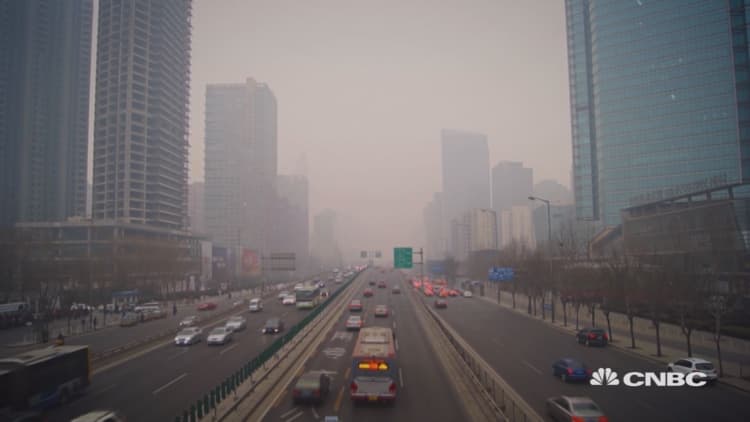Add kidney disease to the list of health problems associated with air pollution.
A team of scientists from Washington University in St. Louis and the Veterans Affairs St. Louis Health Care System found an association between tiny particulate matter and kidney disease in two different data sets.
The scientists compared Veteran Affairs data on kidney disease with data on air pollution from two separate sets: satellite data from NASA and information from the Environmental Protection Agency.
Their study consistently found that risk of kidney disease rose along with air pollution levels across the continental United States.
As might be expected, many of the areas of the U.S. at greatest risk tend to be more heavily populated. The part of the country with the lowest risk overall is a section that runs roughly from Montana through West Texas. There are pockets of lower-risk areas in other places, but much of California and the Eastern half of the United States are more vulnerable.

The scientists published their results Thursday in the Journal of the American Society of Nephrology.
It is important to note that this only found an association with air pollution — the study did not conclusively determine pollution to be the cause of kidney disease.
But the fact that the study found the association in both the EPA data set and the NASA data set is compelling, said Dr. Ziyad Al-Aly, a senior author on the study and an assistant professor of medicine at Washington University, in a statement.
"The beauty of using both EPA and NASA data is that the agencies used two distinct techniques for collecting data, yet the results were similar," he said. "This constellation of findings suggests that chronic exposure to air pollution is a significant risk factor for the development and progression of kidney disease."
The study focused on a type of pollution called PM 2.5, which is particulate matter up to 2.5 microns in size. This particular form of pollution can come from myriad sources, including vehicle emissions, fossil fuel power plants, wildfires or even campfires.
Scientists say the particles can enter the bloodstream once they are breathed into the lungs.
Air pollution has been linked to health problems as varied as cardiovascular disease, diabetes and weight gain. The study's authors say that one of those conditions could be responsible for kidney damage, rather than the pollution itself.
They also noted that the population they studied was mostly older white male military veterans, so the results might not apply to other populations. The scientists tried to account for confounding factors, but there could still be additional variables, such as diet or genetics, or even other environmental factors such as exposure to heavy metals.
But the data show a clear association.
"In our analyses, the risk of chronic kidney disease and its progression was most pronounced at the highest levels of fine particulate matter concentration," Al-Aly said in the release. "This suggests further study is needed for a broader assessment of the global burden of kidney disease attributable to air pollution."
Air quality has improved in the United States in recent decades, but Al-Aly pointed out that there is no safe level of exposure to PM 2.5; even low levels can increase risk.
Other parts of the world have serious problems with hazes of pollution. China has even had to essentially shut down entire cities for days at a time. Just breathing Beijing's air might be as bad as smoking 40 cigarettes a day.
WATCH: Moss could be game changer when it comes to air pollution



